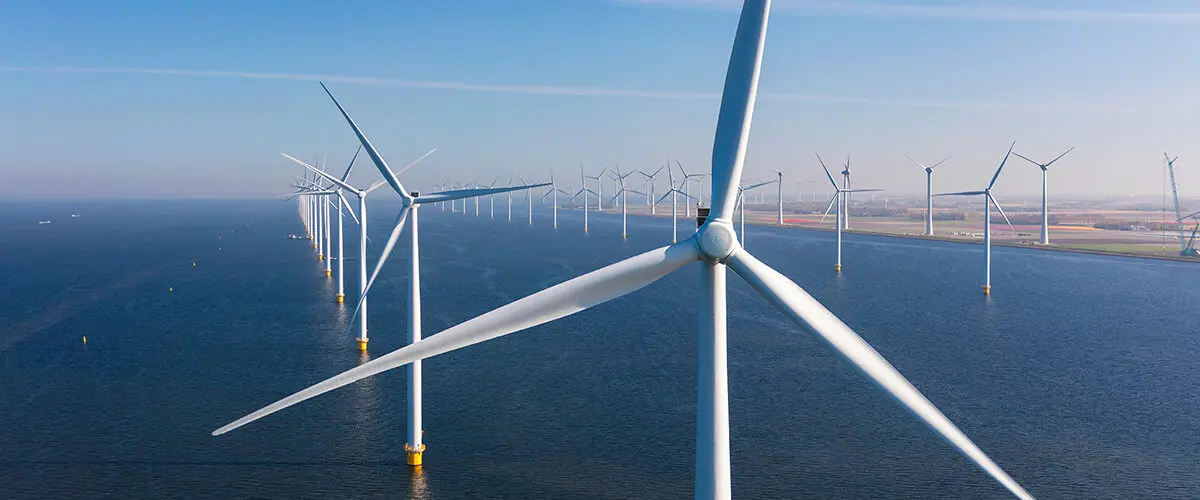Mission
Acadia Center’s mission is to advance bold, effective clean energy solutions for a livable climate and a stronger, more equitable economy.
Grounded in impactful data analysis and inclusive partnerships and collaboration, we fight for economic and environmental policies that will have the greatest impact on carbon emissions in our region. Working at the intersection of government, industry, grassroots organizations, advocates and communities, Acadia Center develops courageous solutions for our region’s systemic energy challenges.
Together with policymakers, environmental justice partners, and donors, we can build an energy system that puts people front and center, shifting conversations to promote equitable solutions. We work to amplify voices that are not always heard or heeded, striving to find common ground so that our communities have clean, healthy, affordable energy so we all can thrive.
There is no time to waste: we must make the next decade count. The sea around New England’s coastlines is rising faster than the global average. Hurricanes are increasing in number and intensity – 2020 saw 30 tropical storms, forcing forecasters to dig deep into the Greek alphabet for names, and we are experiencing more heatwaves. With each passing year, the urgency grows to accelerate progress toward clean energy for people across the Northeast. Yet there is hope and progress. Most states in the Northeast have aggressive plans to decrease greenhouse gases and increase energy efficiency – many are well on their way to meeting 2020 goals. Jobs in renewable energy industries such as wind and solar are fast-growing and now outnumber jobs in the fossil fuel industry. Still, more effort is needed.
Poor air quality, substandard housing, pre-weatherization issues and heating costs disproportionately impact communities of color and areas of rural poverty. Equity is intrinsic to creating a clean energy future.
— Daniel Sosland, President, Acadia Center
Get to Know Acadia Center
Vision
Acadia Center envisions a low-carbon economy that uses advances in clean energy technology—not fossil fuels—to heat buildings, power vehicles, and generate electricity. The clean energy future has the potential to improve quality of life and human and environmental health while lowering greenhouse gas emissions that are pushing the climate towards an unstable and dangerous state. Acadia Center is working now to build the energy system of the future. Long-term infrastructure investment decisions being made today will lock in energy costs and options for decades to come. States and regional systems urgently need policy changes. Regulatory barriers that limit new technology need to be removed. Acadia Center’s work is organized around four Areas of Focus that work towards the clean energy future from many different angles:
- Advance Long-Term Climate Policy: influencing long-term pathways to emissions reductions.
- Buildings and Transportation: moving towards electrified buildings and transportation, while supporting energy efficiency every step of the way, especially through improved housing and weatherization
- Transition to Clean Energy Sources: reforming outdated utility regulations and financial rules so that the regional power grid embraces renewable energy, supplying the clean electricity our homes and transportation systems will need.
- Changing the Climate Conversation: making complex issues accessible and seeking to engage people from all walks of life in creating a safe climate and clean energy future.
Our Values Regarding Diversity, Equity, Inclusion, and Justice
Acadia Center’s work stems from the necessity that all people, irrespective of their background and identity, need a livable climate to thrive. Our mission to aggressively tackle the climate crisis is grounded in the values of diversity, equity, inclusion, and justice, and we are intentional that these values are interwoven in our engagements, legislation, and advocacy efforts at state and regional levels.
- Commitment to transparency: Acadia Center’s progressive efforts in climate and clean energy advocacy will utilize data and research to present accurate information and promote transparency in the fight to combat the climate crisis. We will seek to further our mission across the Northeast, devoting ample time to researching and communicating our findings in truth and transparency as we inform and advocate.
- Center Equity and Justice: Acadia Center seeks to ensure that equity and justice form the bedrock of the work we do. We will continue to pursue and prioritize equity and justice in all areas and initiatives of the work we do. We will work to ensure that these values inform the solutions we advocate for; the policy interventions we undertake; and the local, state, and regional conversations we facilitate and participate in.
- Amplify impact by bridge-building decision-making: Acadia Center understands that climate and clean energy issues cut across race, socioeconomic situation, educational background, language barrier, citizenship status, geography, and other aspects of the population, and solutions therefore must intersect between these factors. Success in climate policy requires all voices and groups to be in the conversation. We will continue to amplify the voices of underrepresented groups in climate policy decision-making and be a bridge builder in the climate policy arena.
- Be Bold: Every climate report suggests that we must accelerate progress to reduce pollution in order to meet scientifically determined targets. Success in this decade is critical. Our goal is to offer solutions that remedy climate and environmental harms and deliver a net zero carbon economy on the timeline mandated by science. We will continue to press on and push for bold and daring solutions that strategically position the Northeast states and the region to fulfill our climate goals.




















Follow us